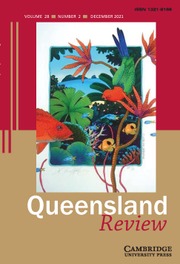Article contents
Hansonism, Right-Wing Populism and the Media
Published online by Cambridge University Press: 26 February 2016
Abstract
This essay aims to explicate the conditions enabling Hansonism. Politically, it argues that the party's exploitation of cynicism about mainstream politics and deepening economic and social divisions have been enabled by the Howard government's zealous pursuit of neo-liberal politics, its dismantling of Labor's welfare safety net, its wedge politics, its cynical reneging on election promises, and its attacks on the fourth estate, not to mention his endorsement of Hanson's freedom of speech'. In terms of the media, the essay argues that Hansonism's protest vote is based on a ‘plague o’ both your houses'. The allied populist prejudices of several radio talkback hosts have drawn their strength from television's virtual displacement of political debate in its posture as voice of the people, its actual address to viewers as domestic, atomised consumers and the increasing populism of vernacular genres such as lifestyle programs and sitcoms. Examples include the most popular Australian film of the Howard-Hanson era, The Castle.
We live in the most polyglot and hybrid moment of human history […] Apostles of purity are the most dangerous people in the world. (Salman Rushdie 1994)
People who can accept their own contradictions do not kill people. (Ariel Dorfman 1998)
The media are […] so much more effective in disseminating information simultaneously to large groups of people that they not only supplement the political and educational systems but in some respects supplant them, because of their enormous power. (Anthony Wedgewood Benn 1972)
- Type
- Research Article
- Information
- Copyright
- Copyright © Cambridge University Press
References
- 1
- Cited by




